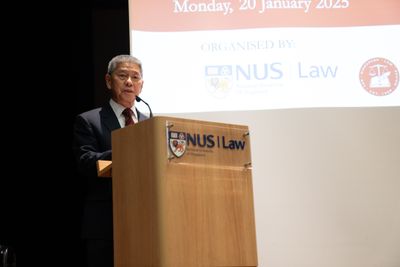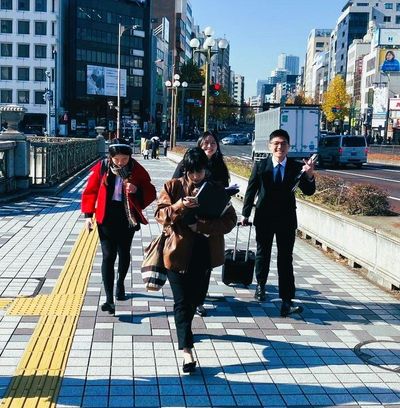On 5 October 2018, the Criminal Justice Club co-hosted its yearly event with the European Union (EU). This year’s instalment was on the contentious section 300(c) of the Penal Code, which has been amended in 2012 to allow judges discretion in deciding between life imprisonment and the death penalty.
Section 300 of the Penal Code is a provision setting out the elements of murder, and s 300(c) in particular states that any act “done with the intention of causing bodily injury to any person, and the bodily injury intended to be inflicted is sufficient in the ordinary course of nature to cause death…” will constitute murder.
The panel this year was a distinguished one, with unique views and experiences. They include Professor Alan Tan of the National University of Singapore (NUS) who was also the moderator, Mr. Anand Nalachandran of TSMP Law Corporation, Ms. Tan Wen Hsien from the Attorney General’s Chambers and Mr. Ong Kye Jing, a Y2 student from NUS Law and former student of Professor Alan Tan.
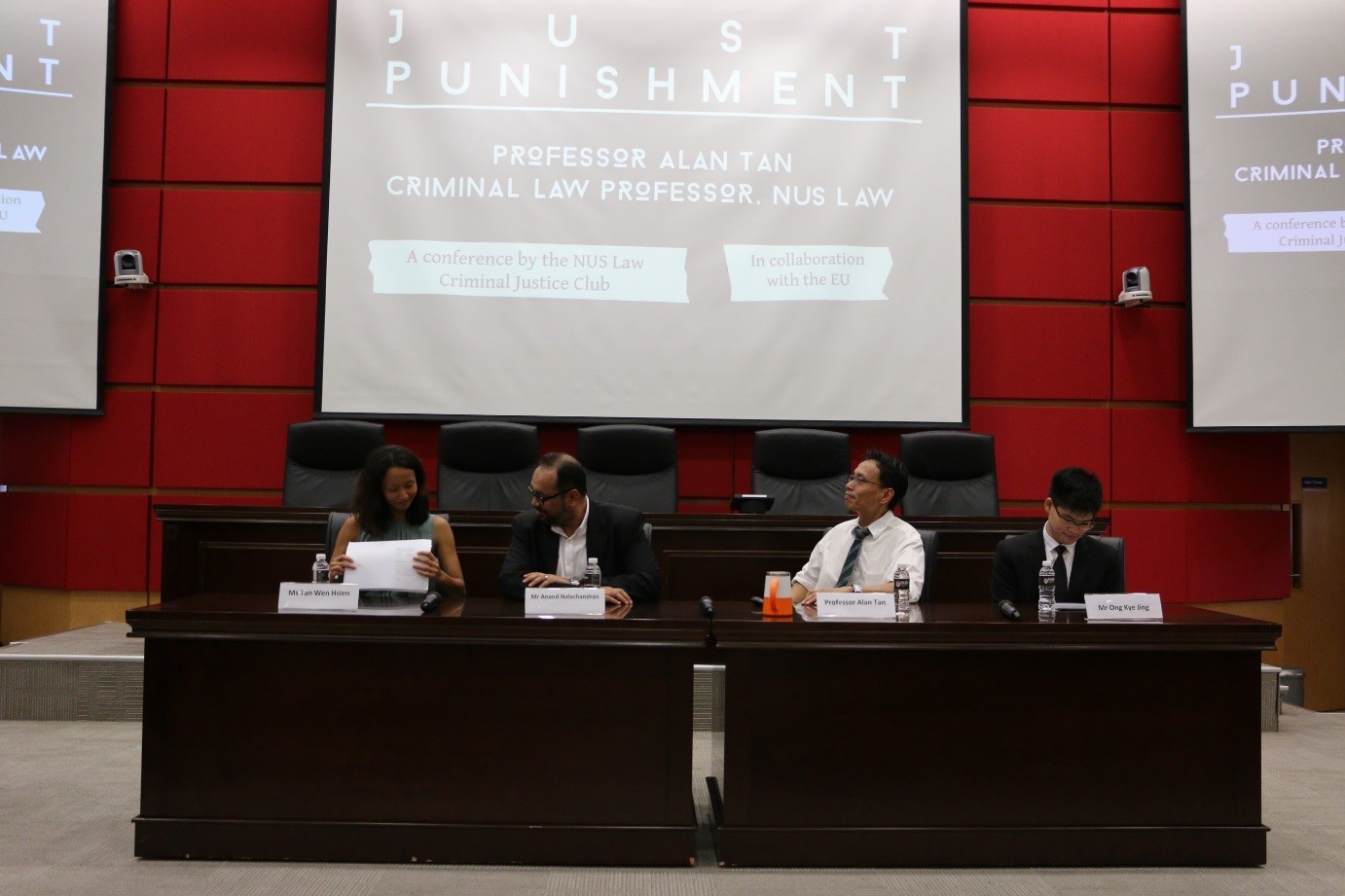
1. The Panelists
Professor Alan Tan is a specialist in Aviation Law, Criminal Law and Environmental Law. Apart from being an enthusiastic teacher of Criminal Law in NUS, he has great interest in Aviation Law. A leading researcher in this field, he has published and won prizes for his research into Aviation Law.
Mr. Anand Nalachandran is a Director at TSMP Law Corporation. As a specialist in the practice of criminal litigation, he has been involved in diverse cases ranging from capital and violent crimes to corporate and commercial offences. As a champion of pro bono work, Mr Nalachandran also seeks to enhance access to justice by representing accused persons under the Legal Assistance Scheme for Capital Offences (LASCO) and the Criminal Legal Aid Scheme (CLAS) as well as the MINDEF Pro Bono Panel.
Ms. Tan Wen Hsien is a Deputy Public Prosecutor at the Attorney-General’s Chambers (AGC). She served as a Deputy Pubic Prosecutor from 2002 to 2007 before joining the Supreme Court of Singapore as an Assistant Registrar in 2007. In 2012, she joined Rajah and Tann for a year, before returning to AGC in 2013.
Mr. Ong Kye Jing is a Year 2 student at NUS Law and Exco member of the Innocence Project (SG). He spends much of his time providing research support for the rest of the team, and has worked with some cases involving the death penalty and the discretionary death penalty under s300(c).
2. The Opening Address
Perhaps owing to the controversial nature of the topic, the turnout was exemplary. During her opening address, the EU Ambassador to Singapore, H.E. Mrs. Barbara Plinkert, remarked that she was delighted by the massive turnout.
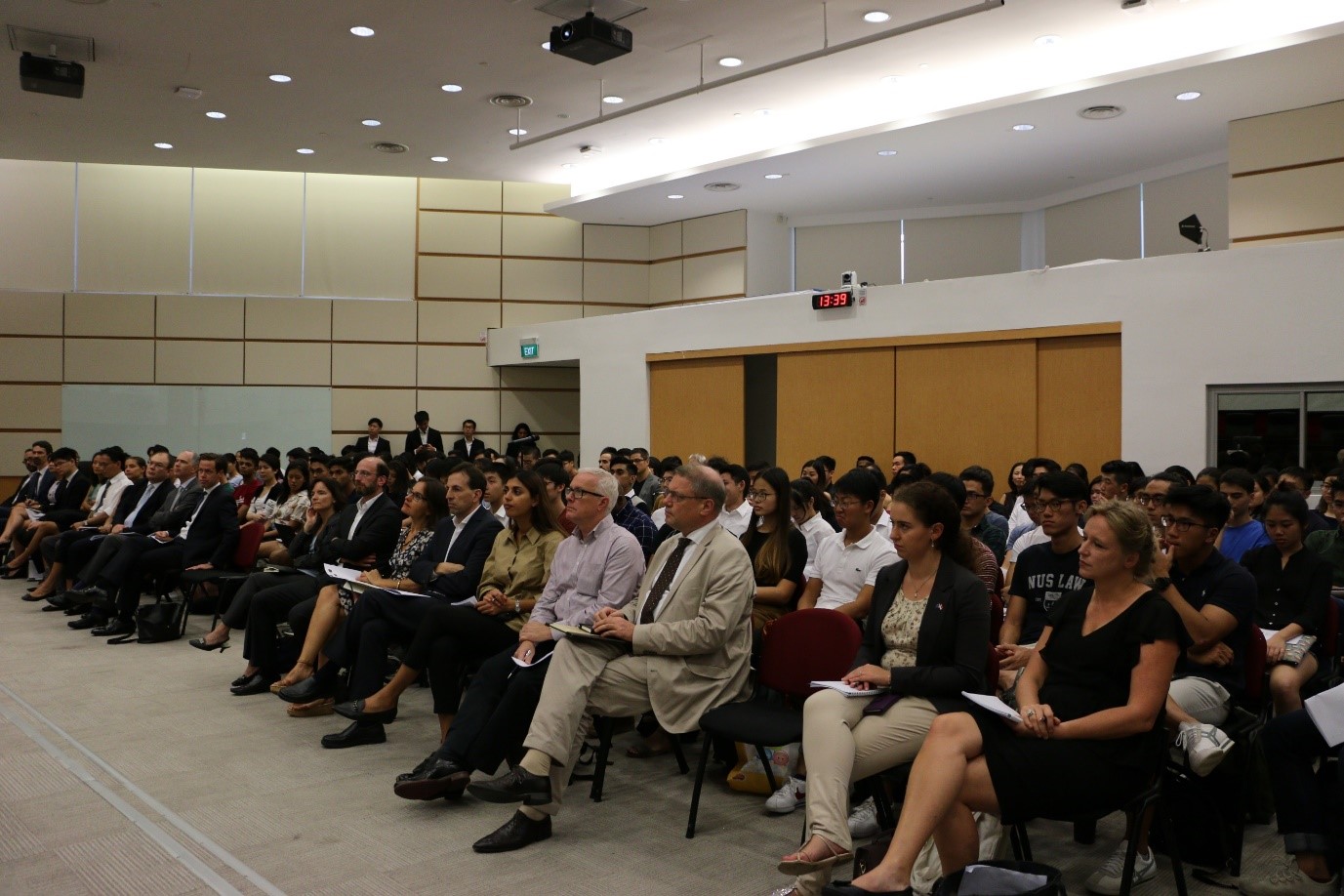
Ambassador Plinkert went on to elaborate on the issue of the death penalty, providing a refreshing international perspective on capital punishment. She shared the international legal framework and the EU position on the death penalty, stating that in international law, the current powers of the death penalty are limited, and that in the EU, the death penalty has been completely abolished. Ambassador Plinkert then provided some insight on the inherent problems of the death penalty — namely, how it contravenes the right to life, and the permanence of judicial error.
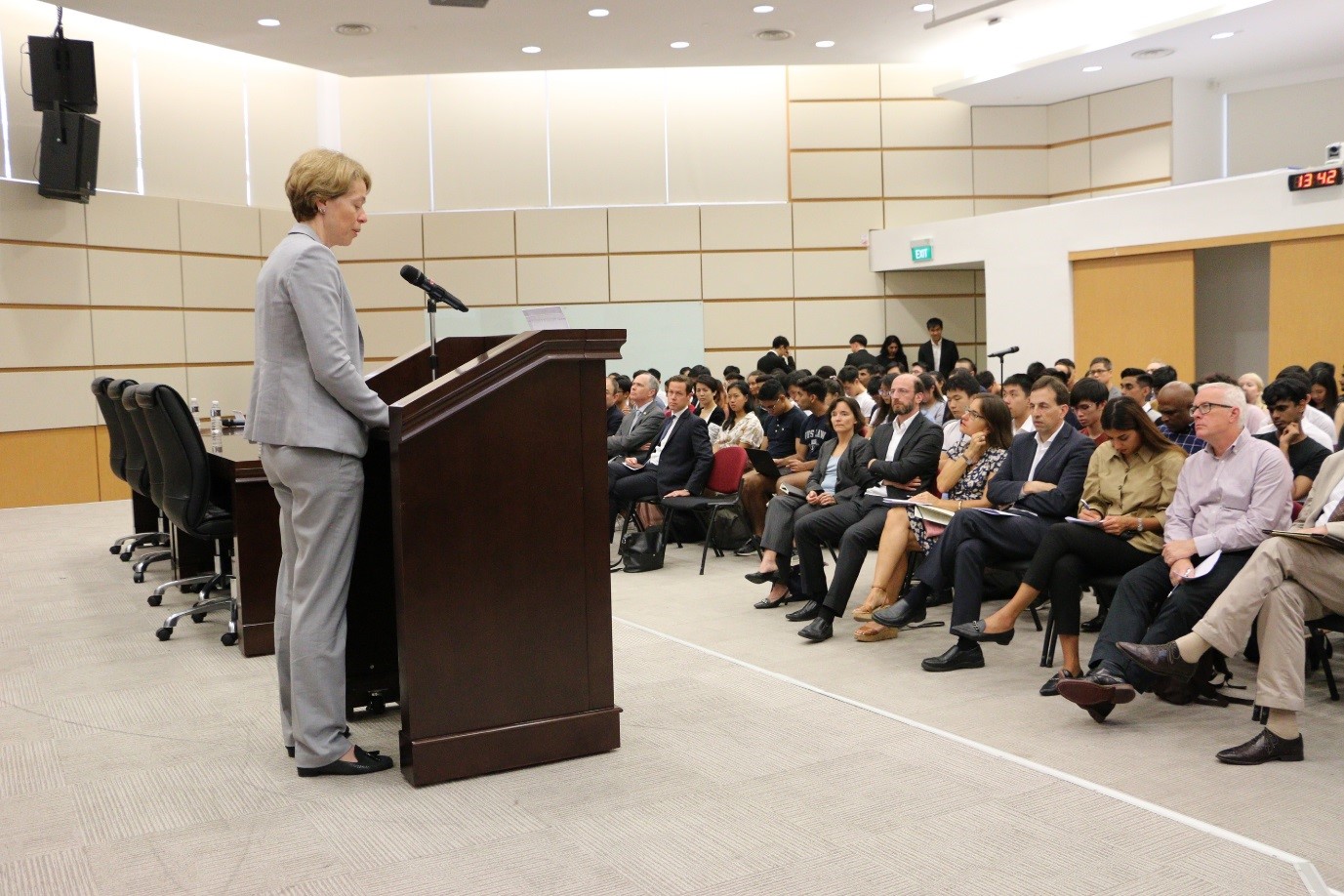
3. The Panel Discussion
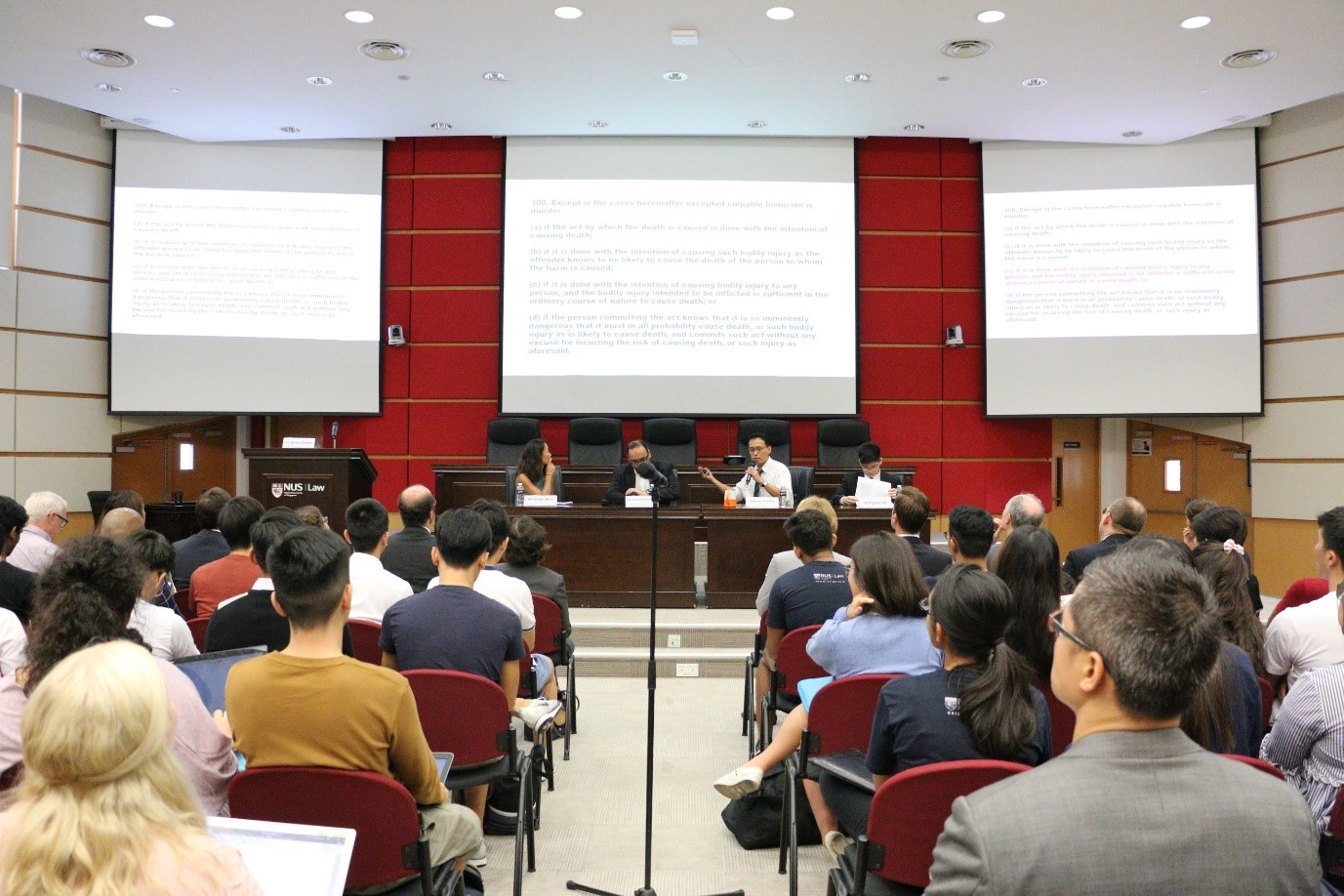
The panel discussion started off with Professor Alan Tan providing a brief overview of the elements of the offence in section 300 of the Penal Code. He also touched upon the history of this well-known section of the Penal Code, particularly the legislative amendment to allow for judicial discretion in sentencing under sections 300(b) to 300(d) in the Penal Code Review of 2012.
He brought up some interesting examples where the death penalty was considered or imposed in Singapore. Professor Tan then highlighted the recent case of Annie Ee, using it as an example to illustrate how s300(c) might be applied in Singapore. (Mr. Ong later highlighted that the recent Penal Code review is looking to include cases where systemic abuse results in the death of a vulnerable person.)
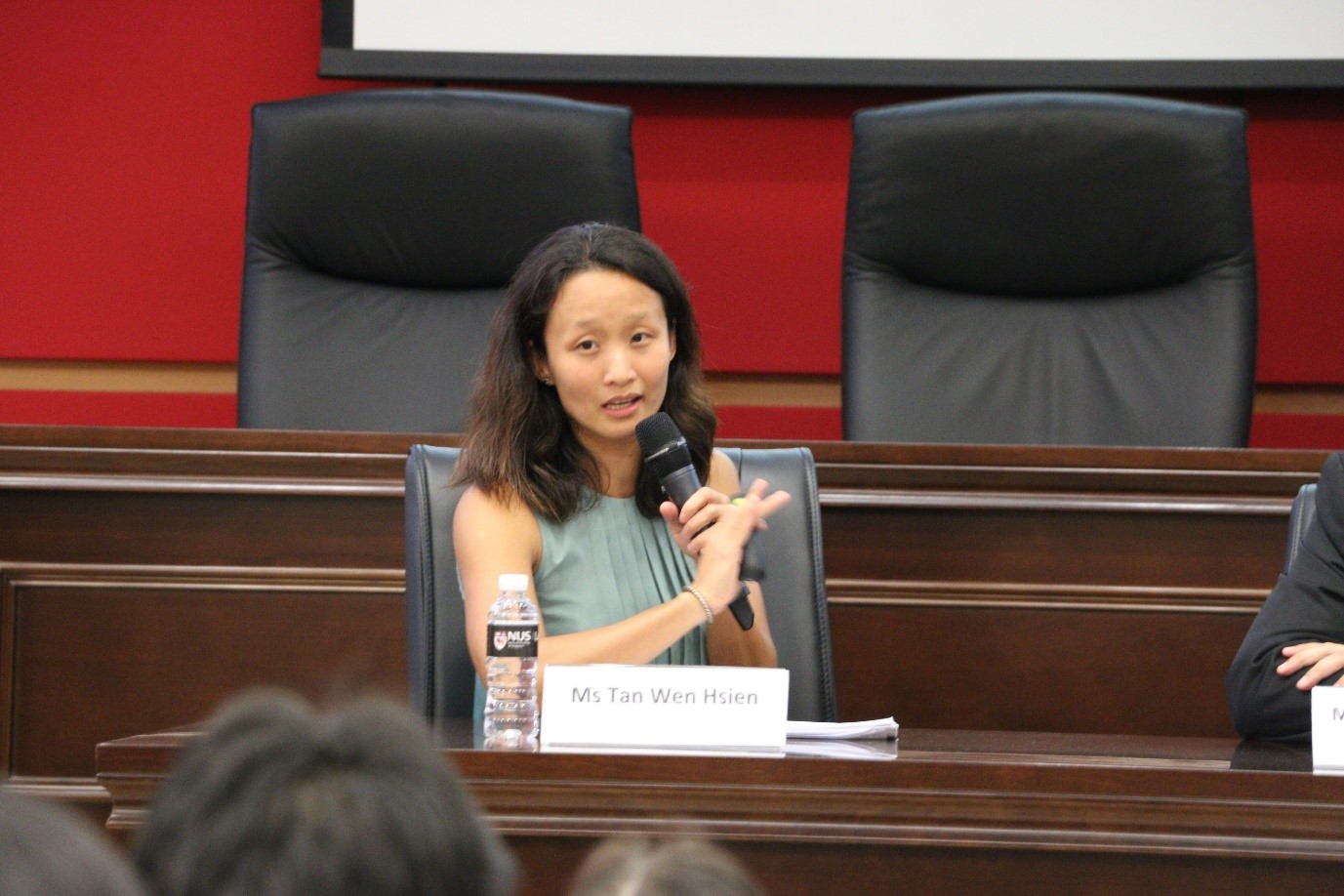
Ms. Tan started her presentation by emphasizing that the mandatory death penalty in Singapore is reserved for the “most serious offences” under the Penal Code. She explained that this distinguished s300(a) from all other limbs under s300 — including s300(c) — which allows for judicial discretion in its imposition.
She then elaborated on the changes in sentencing post-2012, highlighting landmark cases such as the case of Kho Jabing v PP and PP v Chia Kee Chen. She also touched on the Parliamentary Debates for the 2012 Penal Code Review, which led to the courts using the test of “outrage the feelings of the community” to determine if the death penalty was warranted.
Ms. Tan explained that the “outrage the feelings of the community” test kicks in where the offender exhibits viciousness or a blatant disregard for human life (seen through, for instance, the manner of the attack). This includes the number of stabs/blows, the area of injury, and the duration of attack, amongst other things. This is meant to be just shy of the requisite intention to sustain a s300(a) charge, and the harshness of this is necessary to retain public confidence and legitimacy in the administration of criminal justice.
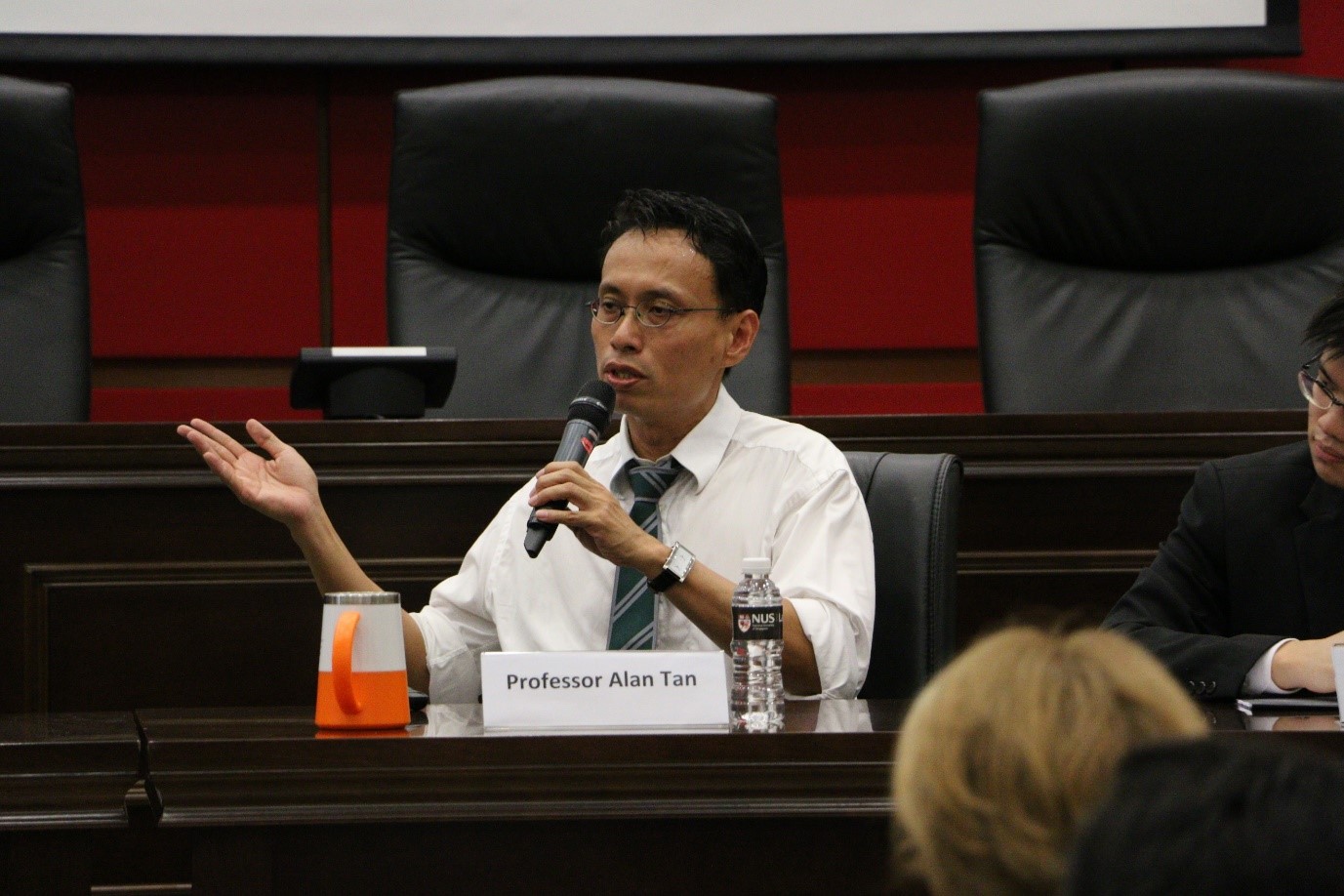
Subsequently, Professor Tan re-analysed section 300(c), which he termed to be the “law of unintended consequence”, using case law like PP v Lim Poh Lye and another and PP v AFR to portray the shift in the court’s opinion on the causal link between the intended injury and death. Professor Tan also noted that although sentencing is an exercise of judicial discretion, it is also a matter of prosecutorial discretion in deciding the charges to be brought.
He substantiated this further through the famous case of PP v Tan Hui Zhen and Pua Hak Chuan (i.e. the case of Annie Ee). The prosecution brought charges under section 324 (voluntarily causing grievous hurt by dangerous weapons or means).
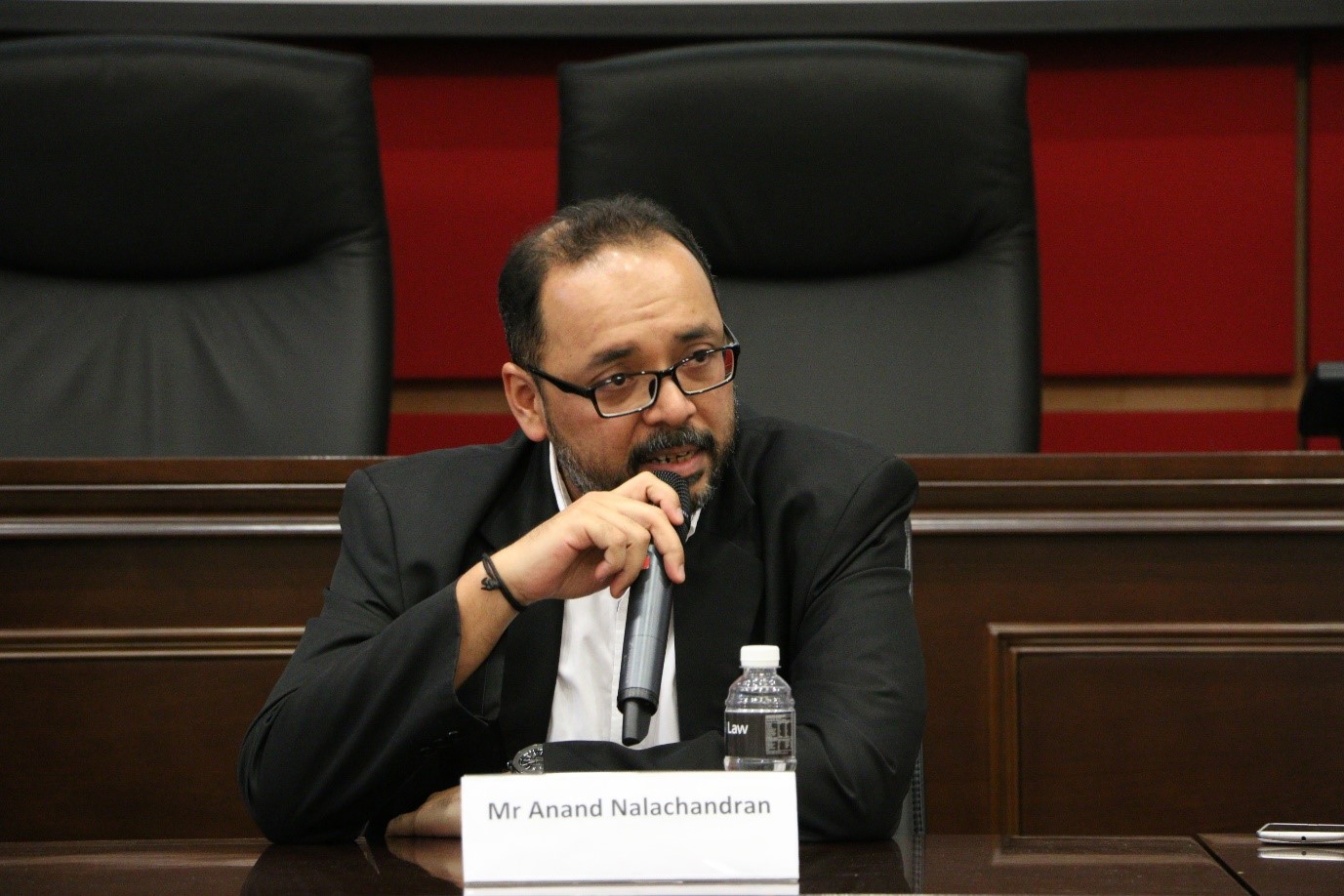
Mr Nalachandran then expressed his views on section 300(c). His perspective was unique, having represented the accused persons in the landmark cases of Kho Jabing v PP and PP v Chia Kee Chen. First, he addressed the Kho Jabing test, stating that s300 cases are evaluated very closely and distinguished very finely due to their dynamic factual matrices, and that flexibility is necessary so that the court can account for the varied circumstances. He then observed that some convictions for murder under s300 (b) and (c) had received sentences of life imprisonment instead of the previously-mandatory death penalty. Finally, he noted that an offence for disposal of a corpse is contemplated in the current Penal Code Review.
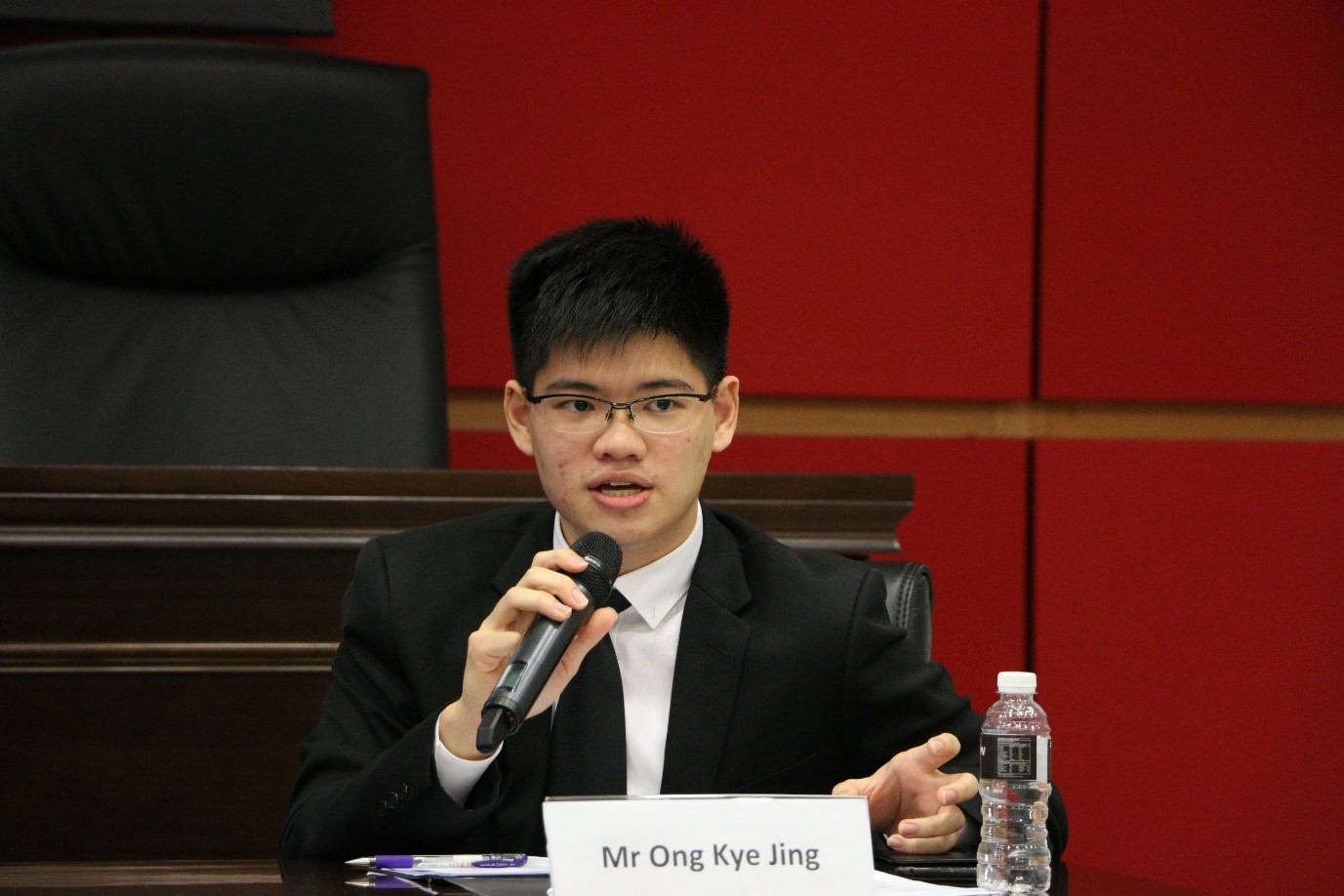
Finally, Mr. Ong analysed the recent Penal Code Review, pointing out the absence of further amendments in this year’s review. He stated that the committee decided that they would not be changing s 300’s wording, though some members of the committee did express a hope that the legal fraternity would continue discussing s 300(c)’s utility and appropriateness as the case law develops.
In response to Professor Alan Tan’s illustration of the Annie Ee case, he also brought up that there are a host of new provisions being introduced to protect vulnerable persons.
4. Questions and Answers
After the panel discussion, it was time for questions.
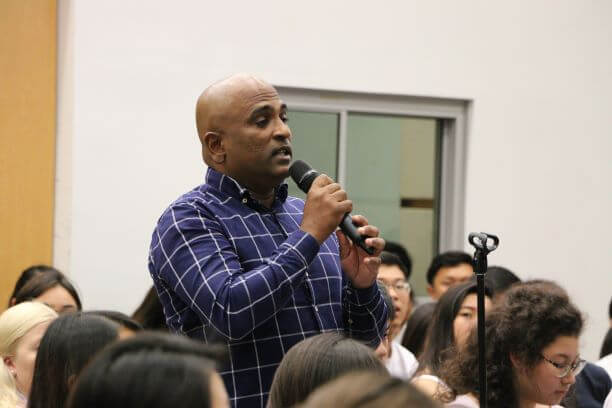
Most notably, M Ravi from the Singapore Anti-Death Penalty Campaign asked one of the first few questions. Referring to the case of Kho Jabing, he asked the panel, and in particular, Mr. Nalachandran, why the sentence of the death penalty was allowed to stand considering the lack of a unanimous decision in the Court of Appeal and the permanence of such a decision. (In this case, three out of five judges ruled to overturn the High Court decision.)
Mr. Nalachandran responded to the question. He noted that Kho Jabing was not the only case of capital punishment with a dissenting judgment but the law is that a majority was sufficient to proceed – however there could be room for discussion in this area.
Thank you to everyone who attended the Just Punishment Conference 2018! A special thank you to the European Union, Professor Tan, Mr. Nalachandran, Ms. Tan Wen Hsien, and Mr. Ong Kye Jing for gracing this event.
Written by: Ding Hang, Pin Xiu
Justified would like to thank the Criminal Justice Club for their coverage of the Conference.



